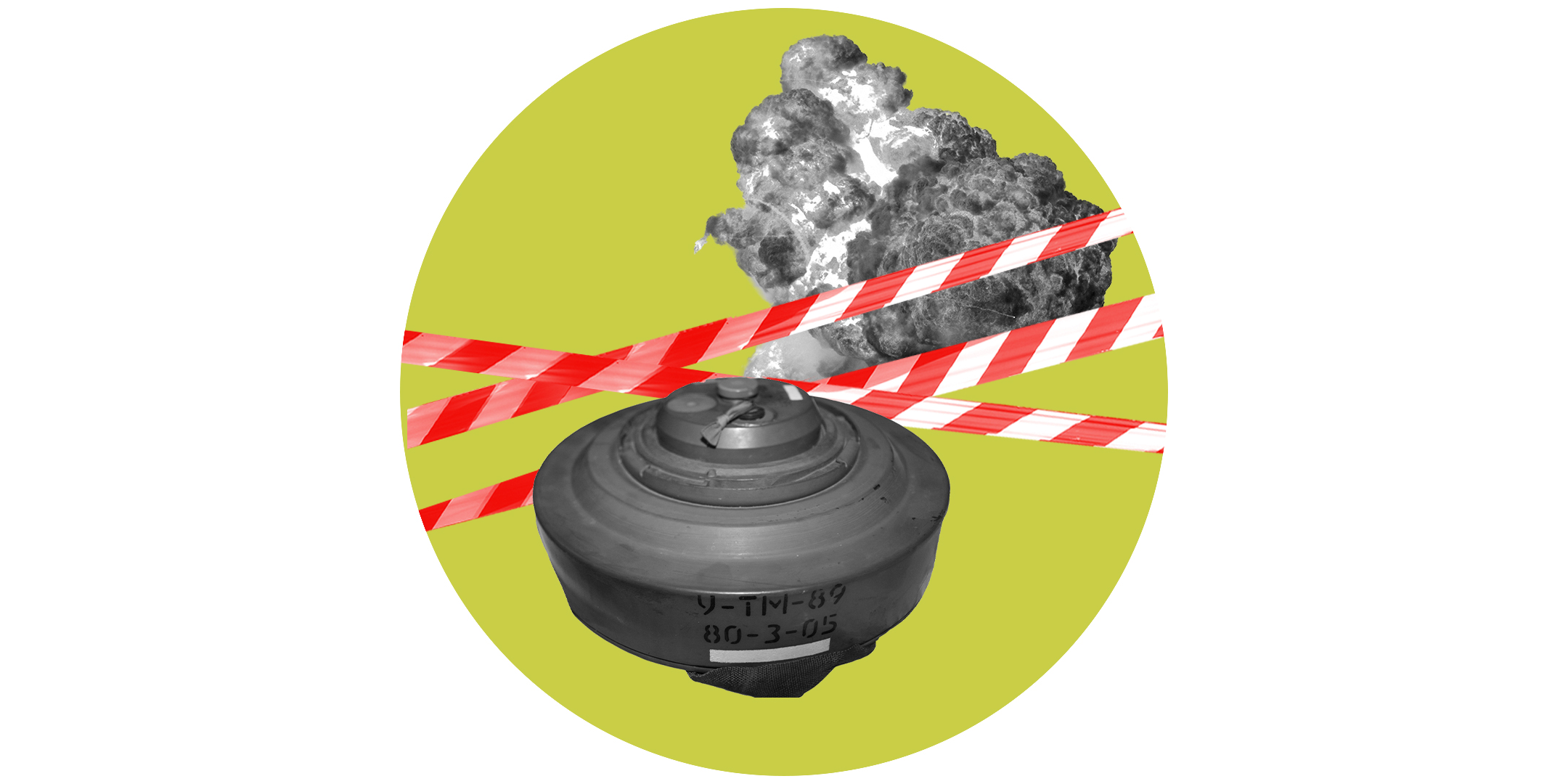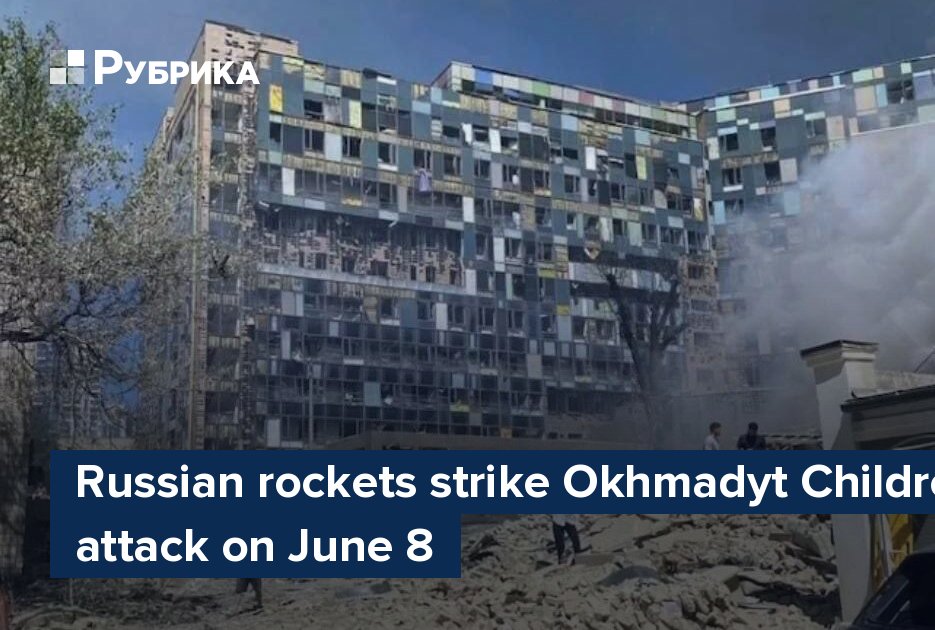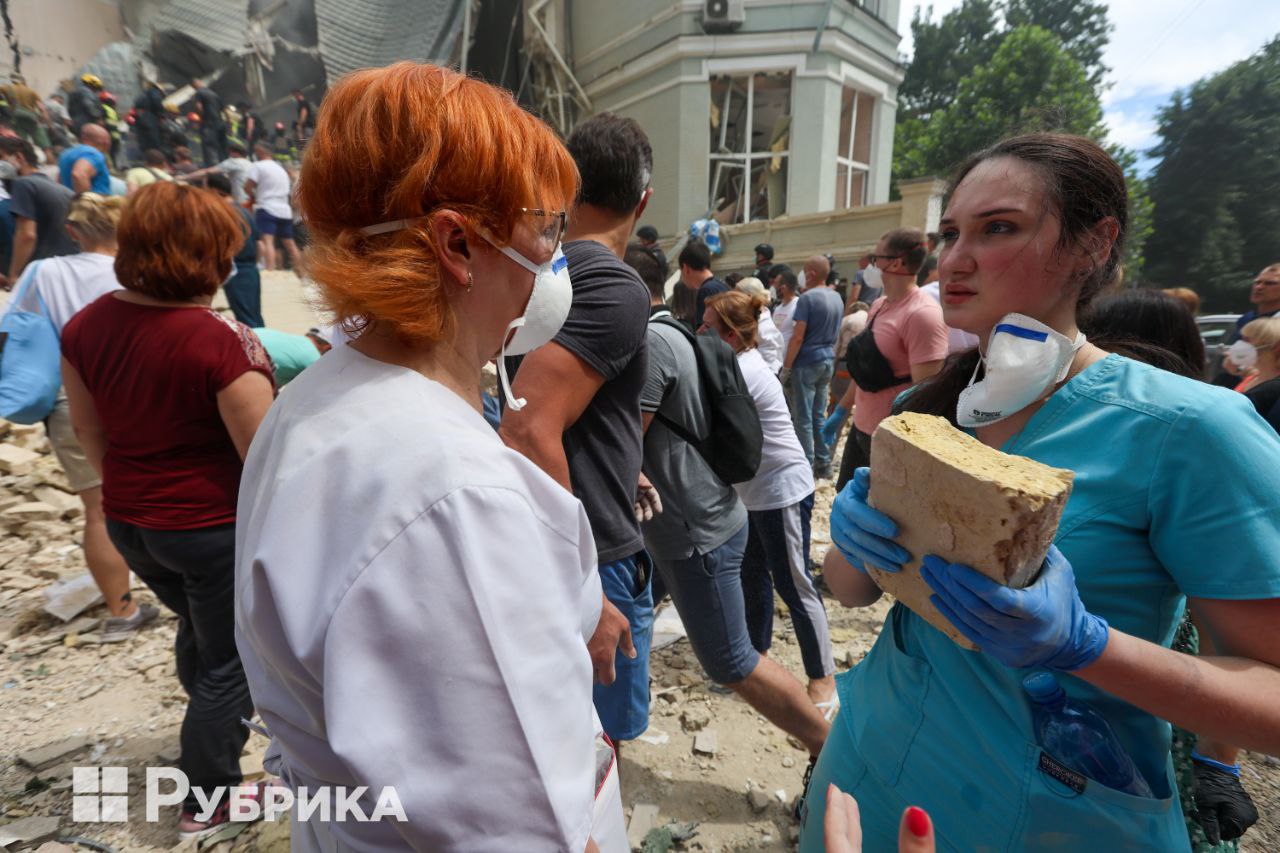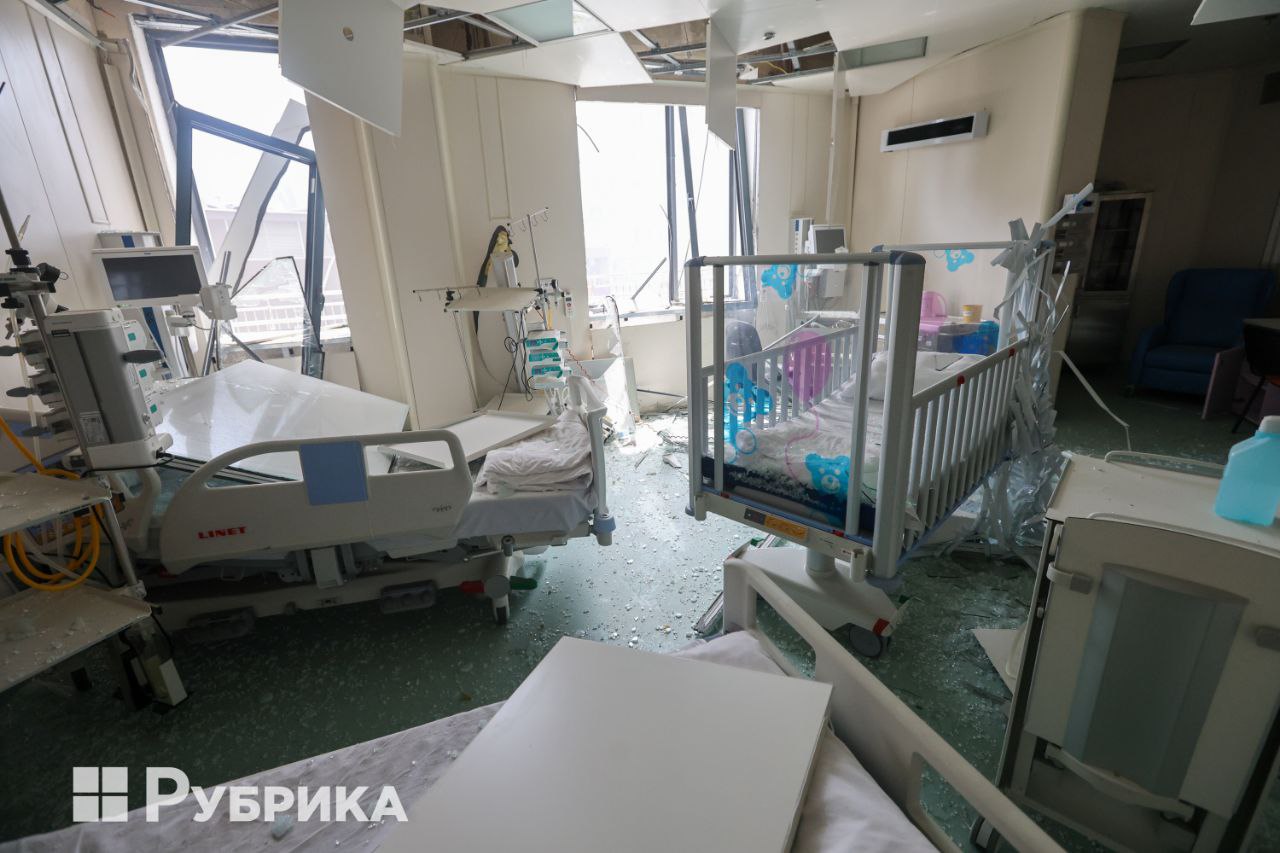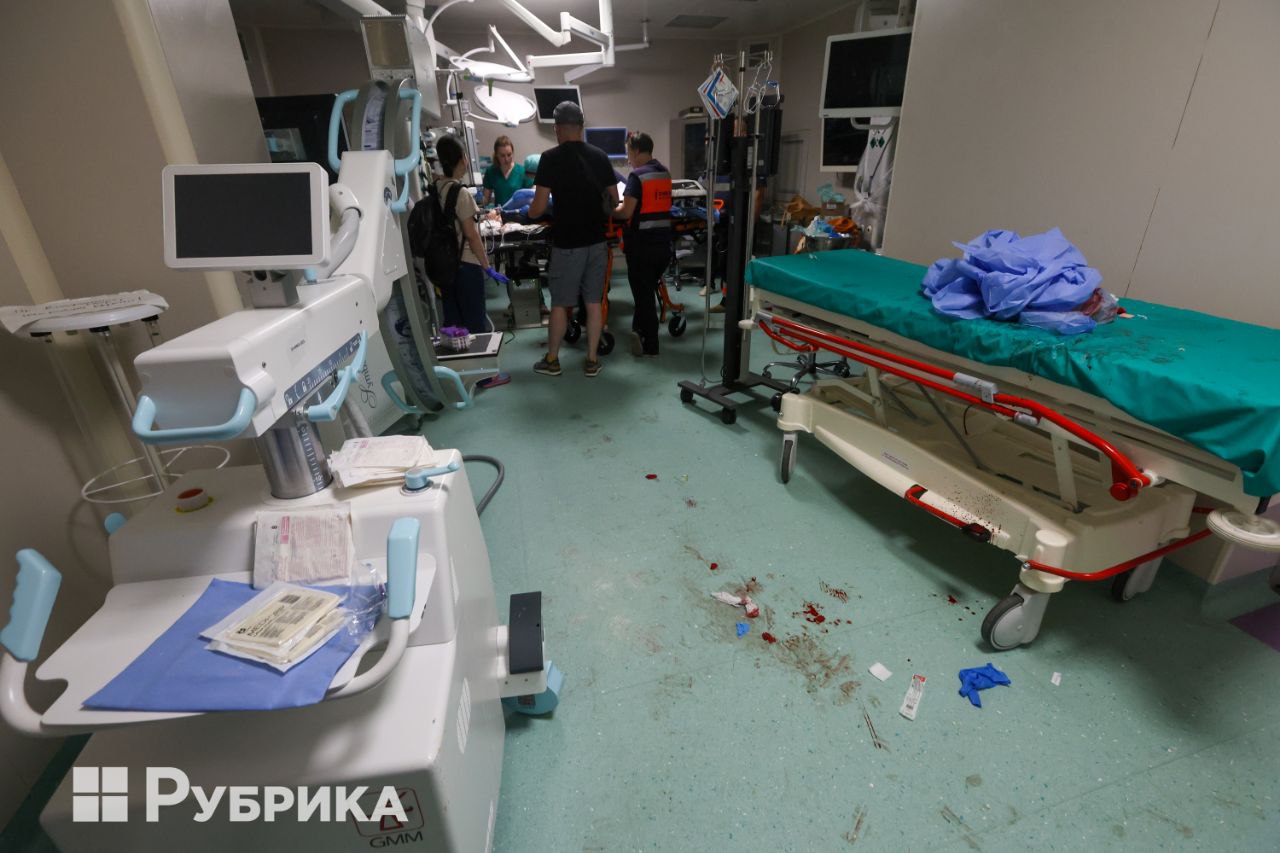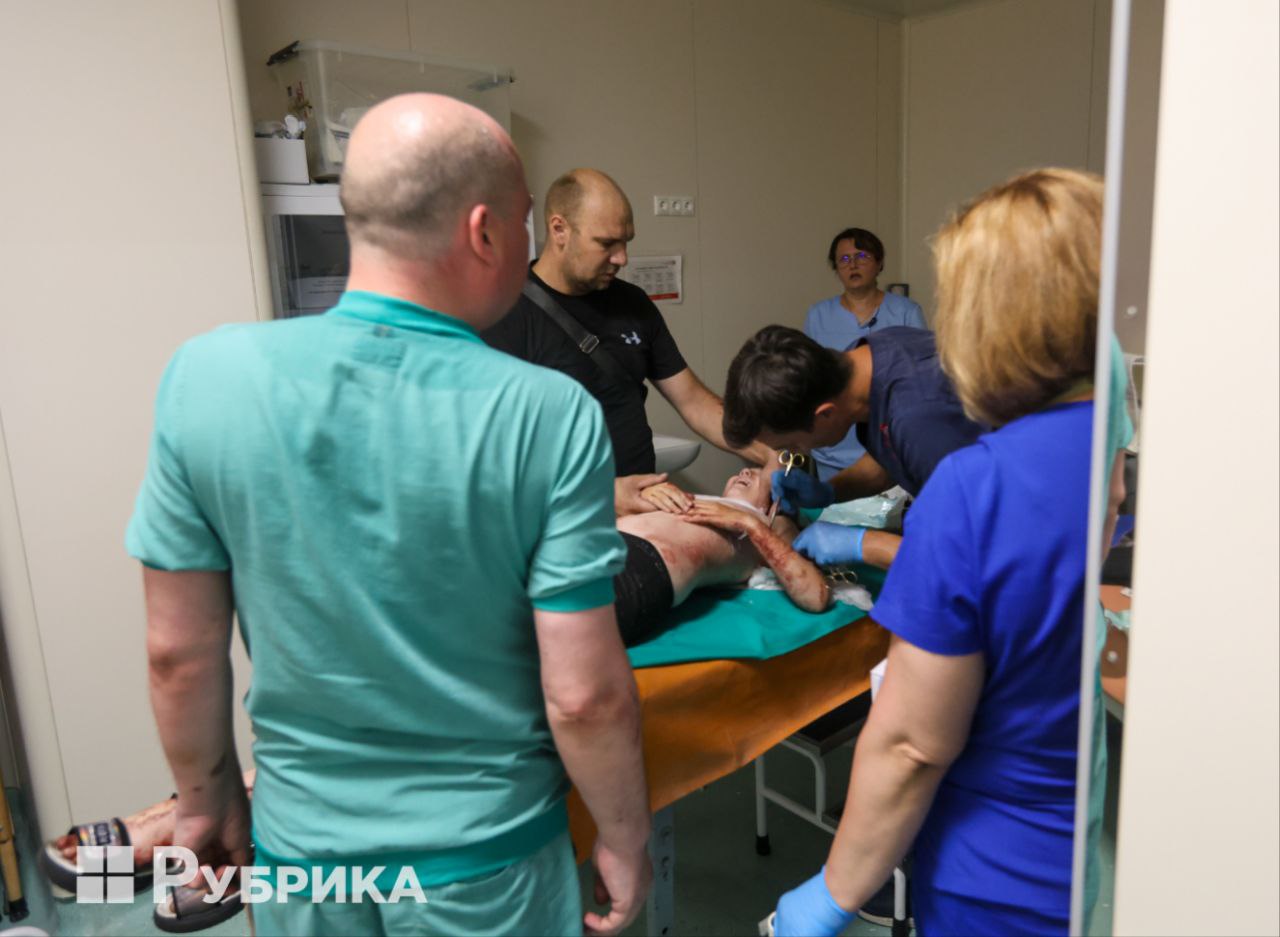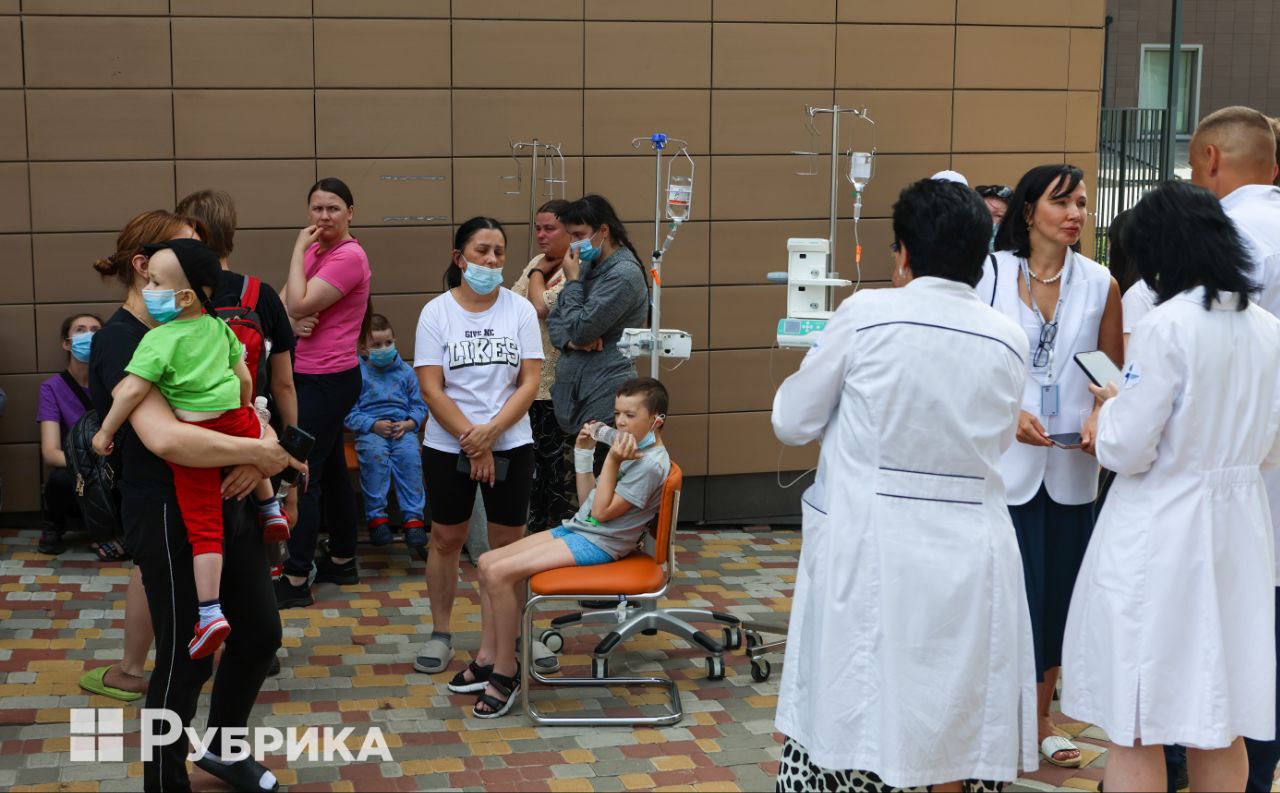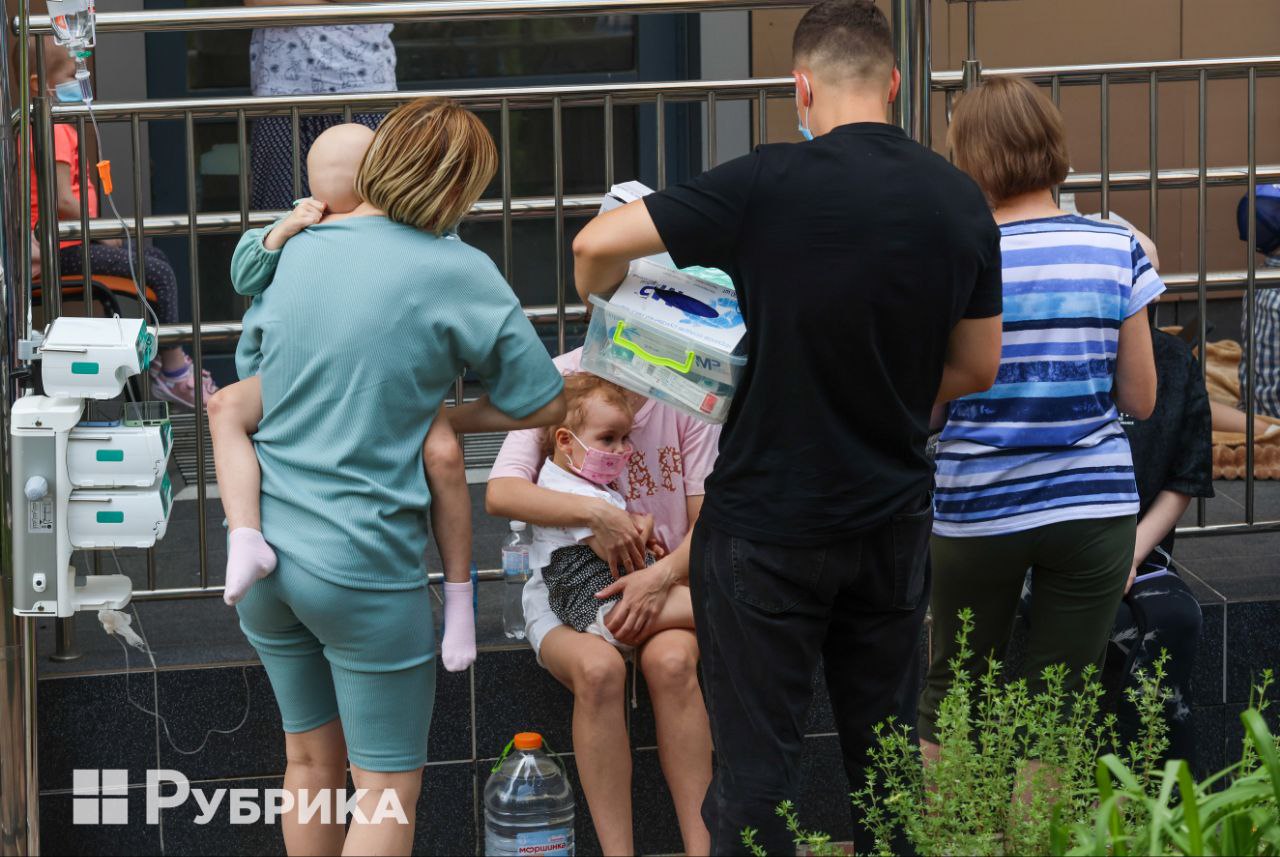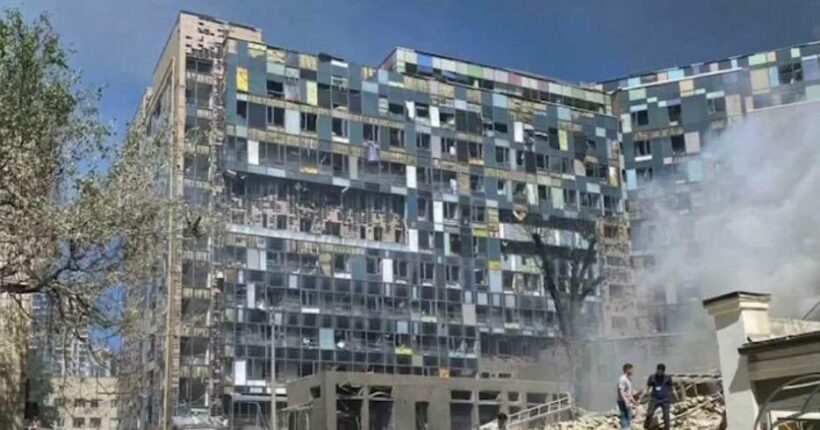
Російські ракети обстріляли дитячу лікарню Охматдит у Києві 8 червня 2024 року. Фото: Рубрика
On the eve of a NATO summit in Washington, Ukraine was rocked by explosions in a massive Russian rocket attack in the morning on June 8, 2024. Reports of the destruction and civilian deaths came from the east-central cities of Dnipro and Kryvyi Rih and the eastern cities of Sloviansk, Kramatorsk, and Pokrovsk. Internal minister Ihor Klymenko reported that 20 civilians across Ukraine were killed in the attacks, and over 50 people were injured, but the number of casualties is not final.
A more extensive barrage of Russian missiles hit the Ukrainian capital, Kyiv, killing ten civilians and injuring 35 more people, according to the Ukrainian prosecutor general's office. Local officials reported that air defense could down part of Russian air threats — debris damaged many civilian buildings in six city districts — but some rockets reached their targets, including one of the biggest and most advanced children's hospitals in the country.

Russian rockets struck the Okhmadyt Children's Hospital in Kyiv on June 8, 2024. Photo: Rubryka
Two Russian rockets struck the Okhmadyt Children's Hospital, destroying one wing of the medical facility and causing a fire. Ukraine's health minister, Viktor Liashko, reported that the Russian strike hit the toxicology building, where children were receiving dialysis. The attack also damaged the intensive care unit, operating rooms, and oncology departments.
Okhmadyt Children's Hospital is the largest and one of the country's most renowned pediatric medical facilities. It is known for its advanced medical equipment and highly skilled medical staff, who offer specialized treatments and emergency care for children from all over Ukraine. Okhmadyt doctors provide cancer treatment and care for young patients, offer services such as dialysis for children with kidney diseases, perform pediatric surgeries, and handle critical cases requiring intensive monitoring and treatment. The hospital staff treats up to 20,000 children and performs about 10,000 surgeries annually. Since the start of the full-scale war in 2022, the hospital has been working non-stop to treat both children and adults affected by the invasion, handling cases of injuries from shelling and other war-related traumas.
Rubryka's correspondent Mykola Tymchenko rushed to the scene of the Russian attack on Okhmadyt Children's Hospital to document the devastating tragedy that rocked the Ukrainian capital. Our reporter witnessed the hospital's facade and windows shattered by the blast wave and damaged entrances. While first responders raced to the site of the Russian strikes, Kyiv locals, including doctors and nurses of the destroyed children's hospital — some covered in blood — took it upon themselves to evacuate the victims and remove part of the debris. They continued supporting the rescuers and police, who arrived at the scene to contain the fire, dismantle the rubble, and save trapped civilians.
Inside the hospital, our reporter saw the destruction of children's wards — beds, incubators, and equipment damaged and overturned — and halls splattered with drops of blood, where the hospital's staff provided first aid to injured patients and medical personnel. He also witnessed the evacuated children with cancer outside the hospital still connected to the equipment and consoled by their parents, nurses, and doctors.
The Ukrainian media Hromadske reported, citing the acting head of the intensive care unit, that children were moved to a shelter during the attack. They survived and will soon be transferred to other hospitals. Many of the hospital staff were injured, including the head nurse, who suffered an upper limb injury. Two people, likely medical staff, are currently known to have been killed by the Russian rocket strike in the children's hospital, according to the interior minister. The rescue operation continues.
Meanwhile, Ukrainian President Volodymyr Zelensky, who is currently on a visit to Warsaw and is scheduled to sign a security agreement with Poland, responded to the devastating attack, stating that the «world should not be silent» after massive Russian attacks across Ukraine.
«Russia cannot help but know where its missiles are flying and must fully answer for all its crimes: against people, against children, against humanity in general,» the Ukrainian president said in a Telegram post, condemning the targeted strikes on the Ohmatdyt hospital. «It is crucial that the world should not be silent about it now and that everyone should see what Russia is and what it is doing.»
The June 8 morning rocket attack on Ukrainian cities is the second one in one night that Russian launched at Ukraine. Overnight, on June 8, Russian forces sent four Kh-101 subsonic air-launched cruise missiles and two Iskander-M ballistic rockets at the Ukrainian territory. They used a Tu-95MS strategic bomber to launch Kh-101 missiles from Russia's Saratov Oblast, which is over 1,000 km from Ukraine, and Iskander rockets from the Kursk Oblast and the territory of the occupied Crimea.
Russia frequently uses the airfields deep into its territory to launch long-range rockets at Ukraine's civilian infrastructure. According to military expert Oleksandr Kovalenko, these air bases for strategic and tactical air force include Engels-2, Ukrainka, and Olenya, located over 1,000 km away from the Ukrainian border. Ukrainian forces are often not powerful enough against Russian long-range strikes because they don't have enough air defense systems and missiles to repel the barrage of Russian missiles.
According the Security Service of Ukraine, the Okhmatdyt hospital was hit with an Kh-101 missile. Relevant evidence has already been found at the scene of the tragedy, including fragments of the hull of the rear part of the missile with a serial number and part of the rudder.
The most obvious response that Ukraine's Western allies can send to today's mass attack on Ukraine, which destroyed a children's hospital and residential buildings in Kyiv and other cities, would be supplying more air defense systems and missiles to down the threats. However, there's another solution to the root of the problem of Russian long-range strikes. It's lifting the ban on Ukraine's using supplied weapons to target military facilities, like air bases hosting bombers, carriers, and launchers of rockets.
While many Western partners, including the US, the UK, and Germany, allowed using their weapons to target Russian military facilities to protect the northeastern Kharkiv region, located on the Ukraine-Russia border and torn by Russian shelling and bombing, the range of missiles the Ukrainian army can use is limited. The facilities Ukraine is able to strike amid restrictions are not far from the border. This isn't enough.
Ukraine will be on the agenda for the NATO summit in the US on July 9–11, which will include the leaders of all 32 member states. Hopefully, partners gathered at the conference will consider again lifting the restriction on using long-range missiles deep into Russian territory and targeting air bases like Olenya or Engels. The game-changing decision can solve the problem at the core, help the Ukrainian army destroy the bombers, and prevent Russian strikes like the ones of the Okhmadyt Children's Hospital. This step can become a lifesaver for Ukrainian civilians, literally.
Если вы нашли ошибку, пожалуйста, выделите фрагмент текста и нажмите Ctrl+Enter.



